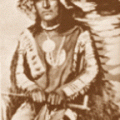
Thief (or thieves) stole “at least 20 to 30 artifacts” from Branson Reynolds, a former archaeologist in Colorado.
Reynolds says a manager of the storage unit called him about three weeks ago to report that the lock on the storage unit had been removed.
Consequently, the “assortment of pottery, bowls, and ladles, as well as some rare necklaces and beadwork” have a value of approximately $5,000 and Reynolds’ unit was “the only one broken into.”
“I can’t imagine how anyone knew what was in there or what it was,” Reynolds said. “It’s just a complete mystery.”
– snip-
“I wish I had more information, but I don’t,” Reynolds said. “It must be obvious, though, because it was the only one broken into.”
Larry Young, manager at Animas Mini Storage who alerted Reynolds, said there hasn’t been a theft at the storage facility for about seven or eight years. While there is a secured gate, there is no surveillance footage that would help in identifying the thieves, he said.
“Nothing else (at the storage facility) was taken,” Young said. “It’s kind of like someone knew he had it in there.”
Why was nothing else stolen? Let’s look at some related general background information. The Native American Grave Reparation Act was inspired by “a group of treasure hunters set off a charge of black powder in the largest mound after losing their ‘mining’ lease.”
“OLD INDIAN BURIAL MOUNDS DESPOILED TO SUPPLY DEMANDS OF CURIO SEEKERS”
This headline brought the Spiro Mounds to national attention in the 1930’s when a group of treasure hunters set off a charge of black powder in the largest mound after losing their “mining” lease. The men sold artifacts from the mounds to collectors all over the world. Fragile items like cotton cloth and feather robes were tossed aside and crushed underfoot.
After the treasure hunters lost their lease, archeologists from the University of Oklahoma led WPA workers on a controlled excavation of the site in 1936 to salvage as much knowledge as possible about this unique site..
The investigation that is underway will let us know whether or not a “treasure hunter” stole the artifacts, or if they were retrieved by rightful owners. Speculating, sounds more like the latter to me, but more facts are needed.
Closing, one thing I don’t like about stories about stolen Native American artifacts (or re-stolen in this case), is no thought goes into where they specifically came from. For example, consider the Spiro Mounds. They didn’t have the research to be specific in 1936, but there’s no excuse for that today.
As for my view, I am not anti-research. However, I do think the tribe has the power to contribute to related research or not by choice, and archaeology doesn’t get to call the shots. What tribe owns the “artifacts” in the first place? And “artifact” is one of those words used to take authority from the specific tribe and bestow it upon the “legitimate” archaeologist; also, the “object” of the Dominant Culture’s gratification is to know all about (homogenized) Native American culture and none of the Native American Holocaust. Feel good, not bad with a conscience that would disallow theft in the first place. If shame safeguards the spirit, the Dominant Culture has none of it, and the storage unit wasn’t “the only one broken into.”
Like I said, no shame.
Ohio Men Get Prison For Digging Up Native American Remains
By Adam Lidgett
Law360, New York (March 2, 2017, 3:34 PM EST) — Two Ohio residents have been sentenced to prison time for digging up and trafficking the remains of Native Americans, in violation of the Native American Graves Protection and Repatriation Act, the U.S. Department of Justice said in an announcement on Wednesday.
Brian K. Skeens and Toby Lee Thacker, of Wellston, Ohio, have been sentenced in federal court for engaging in the excavation and sale of the human remains of a Native American, which were purchased by another man who was sentenced to three months of home confinement for buying them, the Justice Department said. Skeens was sentenced to serve 90 days behind bars, and Thacker was sentenced to 30 days in prison, prosecutors said.


Leave a Reply